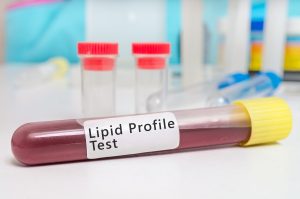 Triglycerides are a type of fat converted from any excess calories we do not immediately use.
Triglycerides are a type of fat converted from any excess calories we do not immediately use.
Mainly derived from fat and carbohydrates we eat, triglyceride stocks are used for energy in-between the meals, but when we take in more than we burn up, that’s when the problem arises.
Advertisement
Although cholesterol and fat are essential for the body, keeping your levels within the norm is imperative, as high levels increase the risk of serious health issues and especially cardiovascular ailments.
Below are the National Cholesterol Education Program guidelines for triglyceride levels:
- Normal triglyceride levels: below 150 mg/dL
- Borderline high triglyceride levels: 150 to 199 mg/dL
- High triglyceride levels: 200 to 499 mg/dL
- Very high triglyceride levels: 500 mg/dL or higher
The good news is, even if you have high triglyceride count, you can naturally lower your levels to protect your heart and reduce your risk of cardiovascular events and other health complications. Here are some home remedies you can try in order to lower your triglyceride levels naturally.
How to lower triglycerides with lifestyle changes
Here are the necessary lifestyle changes you need to make in order to lower your triglyceride levels and live a healthier life. Not only will these lifestyle changes help support healthy heart numbers, but they are also beneficial for your overall good health, too.
- Lose weight
- Cut out sugar – the American Heart Association (AHA) recommends only five percent of your daily calories come from added sugar
- Increase your fiber intake.
- Limit fructose – fructose is a type of sugar that can contribute to high triglyceride levels.
- Eat a moderately low-fat diet – a moderately low-fat diet has been shown to be more effective for lowering triglyceride levels, compared to a strict low-fat diet. The AHA recommends that 25 to 35 percent of your daily calories come from fat.
- Be mindful of the fat you eat – there are good fats and bad fats. Avoid saturated and trans fats and consume more monounsaturated or polyunsaturated fat typically found in olive oil, for example.
- Increase your fish intake – go for salmon and sardines
- Exercise
- Limit alcohol
- Take triglyceride-lowering drugs if necessary as recommended by your doctor
- Quit smoking
- Control diabetes if you have it

